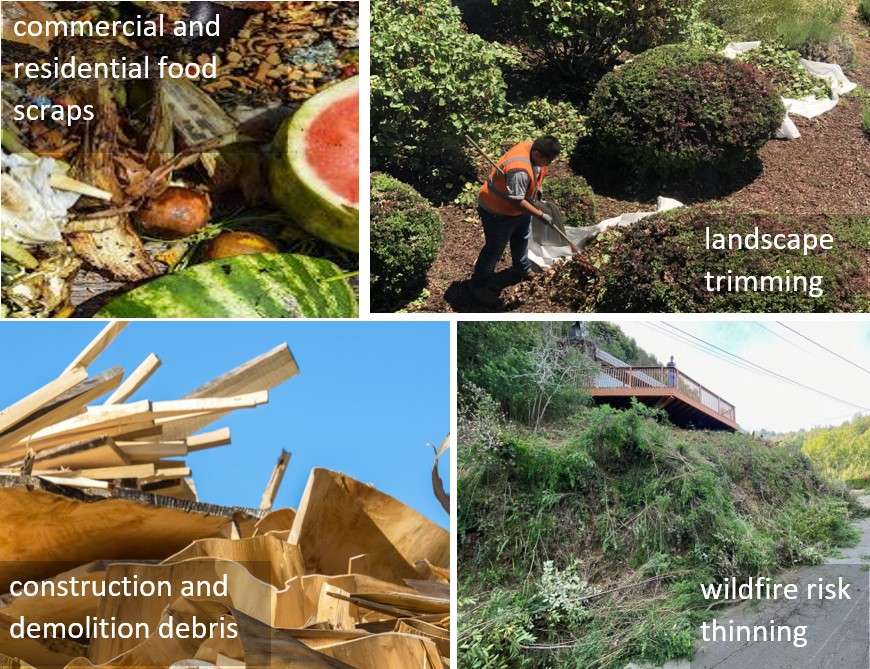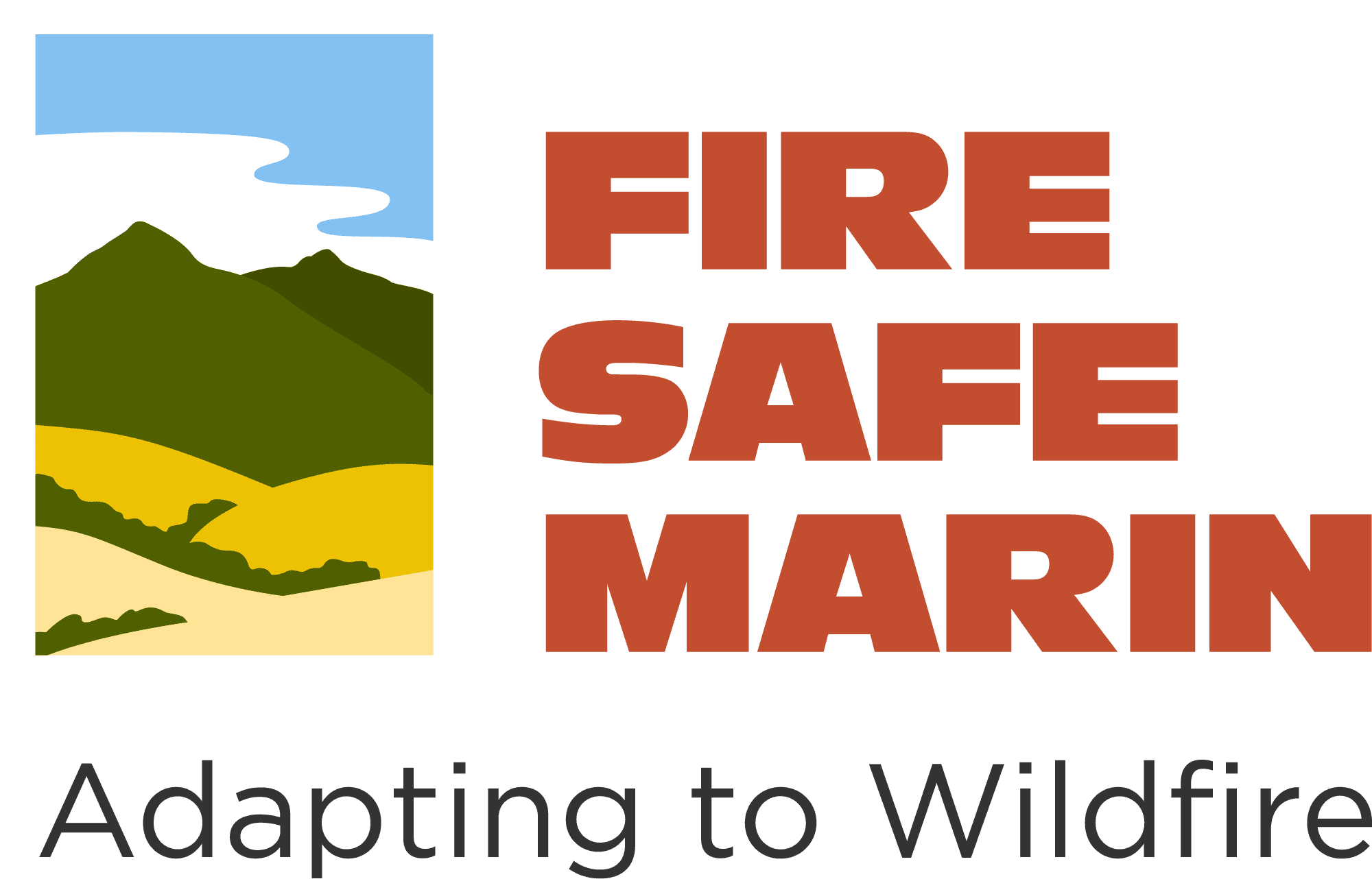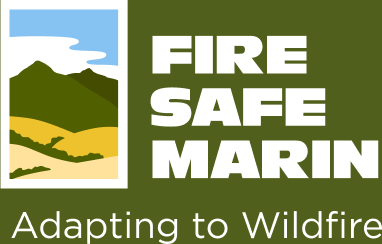
A working group of the Marin Wildfire Prevention Authority/Ecologically Sound Practices Partnership has started a Biomass Recovery study, working in concert with resource haulers and processors, to identify responsible ways to manage the increased amounts of organic material being generated by both wildfire prevention activities and curbside collection programs. The Biomass Recovery study is based on the solution/proposal endorsed by Drawdown: Marin, a county-wide campaign to reduce greenhouse gas emissions dramatically and prepare the County for climate change impacts.
With the passage of Measure C and formation of the MWPA we are anticipating considerable growth in biomass generation. PG&E wildfire prevention plans call for hugely expanded tree trimmings and removal. Landowners costs for vegetation management are mushrooming. Options are limited or unknown. The costs of transporting the woody biomass are substantial and the systems for handling are burdened.
With SB 1383 (2016) the State of California established a goal to divert 75% of organic materials from landfill by 2025. The goal means that municipalities and the county must develop or expand their biomass collection systems and find markets for these materials to keep them out of landfills.
It is not clear where this biomass will go, whether the recovery infrastructure for managing it is adequate, and whether the system will utilize the biomass in a way that minimizes carbon emissions and optimizes carbon capture.
Why the study
These issues cannot be addressed with current knowledge. We need to study the amount of biomass being mobilized; the products and processes that are most feasible for Marin to pursue; the climate and drawdown impacts and a strategy that optimizes them. What is unique about this approach is that it provides a systems approach to assess the facts and evaluate recovery options.
There is a growing literature that bears on many aspects of biomass recovery that the working group takes into account in developing its scope of study.
The Feasibility and Optimization Study
The objectives of the study are:
- To conduct a biomass inventory for the entire county (starting with data from all those who are managing biomass).
- To connect and collaborate with waste managers in Marin and Sonoma Counties.
- To conduct a feasibility analysis on biomass recovery pathways.
- To conduct an optimization analysis on biomass recovery options to assess GHG emissions and sequestration.
- To implement findings in a pilot project or in existing resource.
Conversion pathways
The group identified seven potential conversion pathways that turn biomass into different kinds of products. These pathways will be examined to evaluate: 1) their current feasibility in terms of infrastructure development and economic potential to create locally desirable value-added products; and 2) their drawdown potential.
Availability of biomass for energy purposes depends on economic factors such as recovery and transportation costs, conversion technology and permitting/regulatory costs and competition with other end use markets.
Here are some examples of conversion pathways:
- Wood products manufacturing turns wood products into composite/engineering wood products
- Wet and dry anaerobic digestion use microbial reactors to convert biomass into methane (aka renewable natural gas) and either liquid or solid fertilizer
- Gasification process heats up biomass to break it down into renewable hydrogen and a nutrient-rich material called biochar
- Composting produces compost, which can be used to amend soil
- Mulching produces woodchips used in landscaping
- Waste to energy combustion- the current solution being used in Marin- burns biomass to make electricity and steam
Leadership and planning
The Biomass conversion working group is a dedicated, diverse mix of experienced people who work well together, are respectful of different perspectives and committed to finding solutions.
Members: Belle Cole, OFA Marin; Christopher Carstens, Carbo Culture; William Carney, Sustainable San Rafael; Steve Devine, Zero Waste Marin; Larry Minikes, Marin Conservation League; Matthew Sagues, Marin Municipal Water District; Dr. Daniel Sanchez, UC Berkeley; Mike Swezy, Marin Conservation League; Rich Shortall, Fire Safe Marin; Dr. Chad White, Bay Area Air Quality Management District.
The group is developing a scope of work that will be carried out in three phases over two years. They are seeking funding to hire a consultant, a process that is underway.







